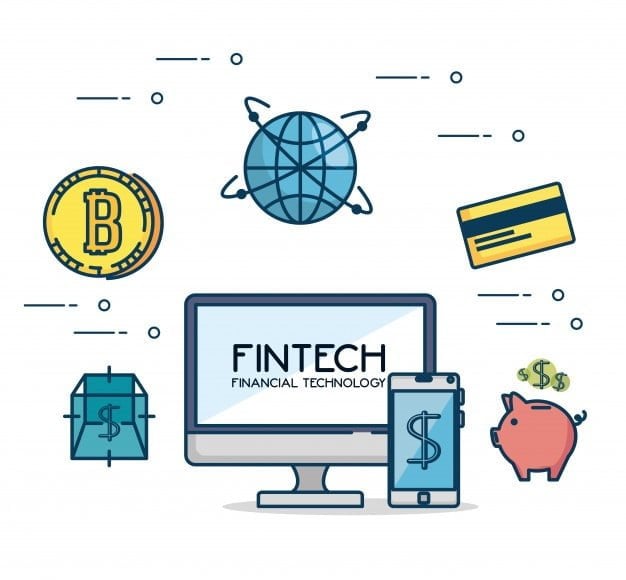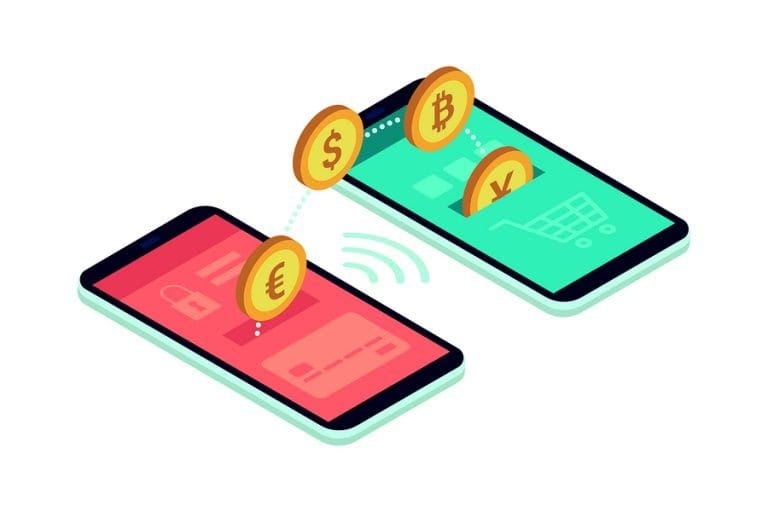Fintech application development is a disruptor.
Table of Contents
ToggleAs the name suggests, FinTech is the combination of Finance and Technology. Any organization that uses IoT devices (Internet of Things), i.e., mobile devices, internet, cloud services, or software technology for performing financial assistance are considered as Fintech.
It has brought a significant revolution in traditional banking and financial services in the way they carried out their operations. FinTech Application Development transformed the Banking and Finance Industry in many ways.
According to a study, between 2015 to 2018, India had over 1,500 fintech start-ups and surpassed Germany, United Kingdom, and Singapore as the fastest growing ecosystems in this sector.
Initially, it was limited to backend systems, but now it is abundantly used in online payments, mobile payments, funds management, stocks, etc. In other words, it has changed the financial ecosystem and has digitally transformed the core process of payment methods.
Multi-currency digital payments are a norm, peer-to-peer lending is now more popular than going through a process of application at a bank, and insurance claims can be filled out from your home within a few minutes.
Financial institutions, banks, and brokers are adjusting to the demands of the public, striving to attract and retain customers by digitizing data, cryptocurrency, Blockchain, and the use of AI (Artificial Intelligence). All this has become possible through the use of Fintech Apps and tools.
Types of Fintech Applications
Now let us see how these applications have affected the Financial Industries and have brought the changes:
Digital Payments
Today, people are using mobile wallets instead of credit cards. Digital banking allows individuals to send money without using traditional banks and process payments more cost-effectively.
Investment and Wealth Management
Investment solutions not only allow people to hold their assets in a single place but also manage their financial portfolios at will and from anywhere in the world with a central management window.
The data analysis tools used can increase automation, especially in asset rebalancing. The cloud-based bot-enabled platforms are being used for advising users about asset management and investment.
Lending/Loan
People around the world can now apply for a loan using their mobile phones. New data points and the better risk models are expanding the credits to the non-affordable populations.
Also, customers can request credit reports multiple times of the year without having to reveal their score. This makes the whole backend of the lending world much more transparent.
Trading

Online trading apps have given anyone who has access to the internet the ability to invest in the market, monitor risk in real-time, and share knowledge as well in the online platform itself.
Personal Banking
Customers can now manage their money online. Banks and start-ups in this space are creating online wallets and profiles to maintain services to translate into a better and faster user experience, which contributes mainly to the digitization world.
InsurTech
Insurance companies are also using digital solutions to provide a better customer experience. Users can perform activities such as acquire new services and fill out claims directly from the app at any time, without going through the tedious process, which earlier they had to follow.
Functional Aspects of Fintech Applications
Now let us see what the functions of these Fintech applications are and how they cater to our needs:
Personalization
With the help of technology like artificial intelligence and machine learning, financial applications can now better understand the users’ wants and desires, with real data. Finding a way to personalize a demand for financial services according to the user’s preferences, makes transactions more enjoyable.
Integration
Integration has two aspects for FinTech apps: the capability of integrating with several other systems and cross-platform synchronization.
Both individuals and entrepreneurs require a variety of services such as mobile payments, crowdsourcing, or financial resource management services.
If you have a financial application that runs on multiple platforms, it is suggested to have your setup shared between all these platforms and having a consistent experience.
Authentication
With money being such a sensitive subject we need trustworthy and secure apps, people will be wary of using a brand new app that does not have outstanding security measures. Two-factor authentication is the right way of securing digital accounts.
Two-factor authentication is the most widely used security measure for these types of applications. Third-party services such as Google Authenticator, Digi Pass, etc., allow verification via SMS or a unique app that the user installs on their device.
That way, they have full control over accessing the account!
Blockchain Fintech Technology
Blockchain FinTech technology is on the rise and is necessary for Fintech companies. Using this technology will create further confidence in the users and clients as it is the building block for the app’s transparency.
Blockchain development does not allow a single transaction to be modified or deleted once it has been confirmed, so any mistakes must be counteracted with another operation.
Stock-trading apps use Blockchain to track the complete lifecycle of a financial transaction. They create secure financial products at minimal cost and make financial services, both functionally and technologically sophisticated and secured.
Data Tracking and Analysis
No matter which FinTech app is being used, users want to be able to track and analyze their financial activities and transaction history. The users can nowadays track their economic movements and easily access their transaction history.
Having the information accessible in a single dashboard and with graphics or visual representations always helps the user have a better experience online and allows them to understand fluctuations in their financial habits with reliable insights easily.
Challenges faced by FinTech Applications:

Though Fintech companies have increased in recent years, there are many complicated difficulties that Fintech businesses need to take care of and be vigilant enough.
Data Protection
Every financial business is trying to keep their data safe when it comes to sharing over the internet from cybercrime, as many FinTech industries help commercial companies to protect their data with blockchain technologies that can help to control the issue.
As modern enterprises are arising each day, Blockchain technology has to look for the most suitable solutions.
Attracting New Customers
Fintech companies are highly successful in raising investments. Still, they are facing challenges in getting new customers because every new bank is establishing its Fintech app for its operations and reducing the dependence of others.
To make attractive new customers, financial companies need to get their Fintech technologies such as a mobile app.
Insufficient knowledge
The global society has its theory about relying on Fintech companies rather than popular series. The Fintech change has the potential to interrupt the financial entrepreneurs.
Still, until more users become trained about Fintech, some of the errors will restrict businesses in the Fintech enterprise from achieving their full potential.
Blockchain Adoption
As mentioned earlier, Blockchain is a critical technology that helps to keep data safe and fight against cybercrime. However, when we discuss financial sector data, security is the not only application that keeps Blockchain safe and used to provide trust among users to make a variety of investments.
However, it is assumed that the industry-wide selection of the Blockchain is complicated.
Conclusion
Although the above challenges exist, FinTech has the potential to transform the business’s nature with technologies and following trends, including building a better relationship between merchants and customers, and anything that will solve the problem of financial inclusion.
There is no doubt that with Blockchain, Big Data, AI, ML, and so many other cutting edge technologies, business leaders are advised to embrace Fintech culture in their business models, and it will be the full-fledged future of Banking and Financial Industry and will be the face of modernization.
Summary:
Fintech Apps Impact on Finance
FinTech Application Development transformed the Banking and Finance Industry in many ways. Types of Fintech Apps:Digital Payments. Investment and Wealth Management. Lending/Loan. Trading. Personal Banking. InsurTech. FinTech has the potential to transform the business’s nature with technologies and following trends, including building a better relationship between merchants and customers, and anything that will solve the problem of financial inclusion. There is no doubt that with Blockchain, Big Data, AI, ML, and so many other cutting edge technologies, business leaders are advised to embrace Fintech culture in their business models, and it will be the full-fledged future of Banking and Financial Industry and will be the face of modernization.





